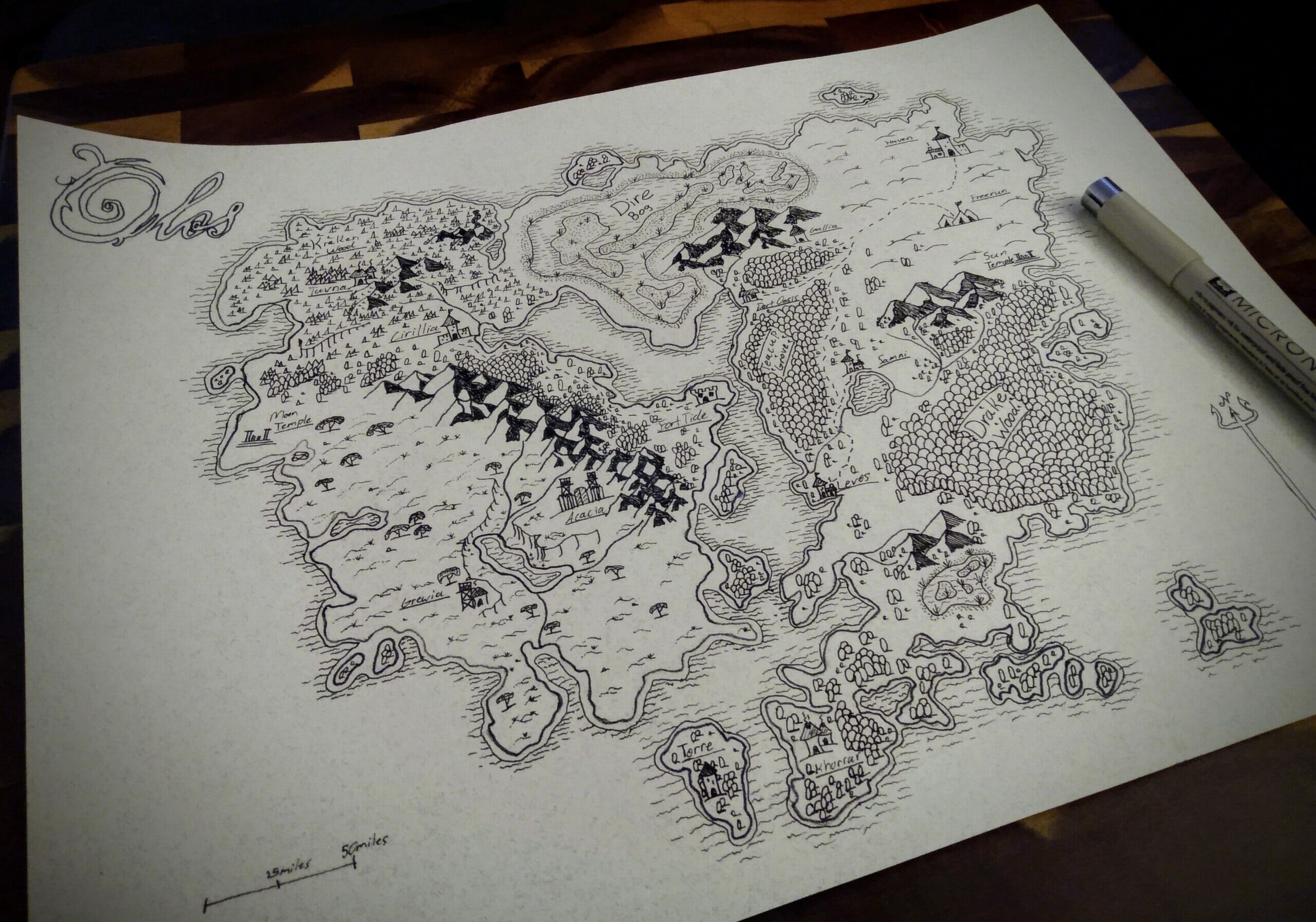What does the word “absurd” bring to mind for you? If someone tells you an outlandish story, you might balk and say “that’s absurd!” to indicate that you don’t believe them—the story goes beyond your suspension of disbelief. So what does that mean for absurdist fiction? What is absurdism, and how do you write it successfully?
Absurdist fiction can be difficult to define. How do you dissect something that you mostly understand through abstract concepts? How do you talk about something that’s about how hard it is to talk about? And how can you even begin to write that way?
In this article, we’re going to talk all about absurdist fiction. We’ll break down what it is, what characteristics you will find in an absurdist fiction book – such as the tone in writing, ten popular examples, and how to write an absurdist fiction book of your own.
What is absurdism/absurdist fiction?
Absurdist fiction is often used interchangeably with “absurdism.” What is absurdism? It is a style of writing that calls existential concepts (such as “truth” or “value”) into question. It portrays the experiences of characters in situations who cannot find purpose or meaning in their lives or actions.
Absurdist fiction writing leans into unconventional imagery, plot structures, and formats to convey meaning. It is a book genre defined by pervasive themes of nihilism, existentialism, and purposelessness.
While absurdism aims to derive purpose from a seemingly pointless or meaningless event, this doesn’t mean the event is an inconsequential one—in fact, most absurdist fiction is about traumatic experiences.
If you’ve ever gone through a traumatic experience, you know that one of the biggest challenges in the healing process is the overwhelming sense of meaninglessness that comes with it: this horrible thing happened, and the world just keeps going. Why did this happen to you? Why did this happen at all? Why do horrible things happen, and is there any point to any of it?
These are big questions, and they’re not easy to answer through the lens of traditional storytelling. Traditional storytelling uses systems like setup and payoff, playing on audience expectation and tailoring reality to make a satisfying narrative. But life isn’t like that. Trauma isn’t like that. And neither is absurdist fiction.
To understand this genre a bit better, let’s examine some common characteristics of absurdist writing.

Characteristics of absurdist fiction
There are five main characteristics of absurdist fiction, and we’re going to talk about each of them to shed a little more light on how this genre operates in practice.
Irrational logic
Some things might not make sense the first time you read it. Some things may be out of order, seemingly nonsensical, or surreal. Note the phrases “the first time you read it” and “seemingly nonsensical,” because we’re going to talk about them later.
Absurdist fiction turns some readers off because, at least on the first read, things feel jarringly random. A character is suddenly talking to space aliens—why? This doesn’t make sense! Because absurdist fiction doesn’t use conventional storytelling methods, it works outside of reader expectations.
If you don’t know what you’re getting into, absurdist novels can feel unsatisfying and unclear at first.
Existential topics
Absurdist fiction wants to derive meaning from the meaningless, and immediately, some themes come to mind—mostly death.
Life after death, good vs. evil, and the complexities of being human are common themes in absurdist novels, and again, because absurdist fiction insists on fully tackling the complexities of these themes, it’s going to have to get a little weird.
Absurdist fiction might also, as I mentioned earlier, concern itself with traumatic experiences. You might see absurdist fiction about war, family tragedy, divorce, etc. These experiences are often incredibly complex and difficult to extract any meaning from, but absurdist fiction sets out to do so. Sometimes it seeks to find the good in these experiences, but more often it understands that to find any meaning is to seek the good.
Dark humor
Absurdism will often include jokes about taboo subjects. This is done either to find the humor in a seemingly humorless situation or to provoke the reader and make them think about the subject at hand—usually both.
Satire
Satire can serve as a form of social criticism and fit in the category of absurdist fiction. This type of satire is often meant to critique systems of power like governments or the ultra-wealthy. If your goal is to become a New York Times bestselling author of satirical novels, it’s worth delving into the art of writing in the style of Kurt Vonnegut.
Nihilism
Characters will often straightforwardly struggle to find meaning with life (or meaning with anything). In nihilism, this meaninglessness leads to a kind of freedom—because there is no meaning, there are also no obligations or requirements.
Basically, absurdist literature asks: if nothing matters, what does?
Now that you have a better idea of what absurdism is, let’s take a look at some prime examples of absurdist fiction.

10 popular examples of absurdist fiction
Here are my top absurdist fiction recommendations for you. This is a beginner-friendly list, so if you’re new to the genre and not sure what to try, anything off this list is going to be a great place to start.
1. Slaughterhouse-Five by Kurt Vonnegut Jr.
Slaughterhouse-Five is often considered one of the top 100 novels of all time, and has firmly planted Kurt Vonnegut Jr. as the king of absurdist literature. This anti-war book follows the life of a young US soldier during and after World War II, and tackles topics of death and mental illness.
2. Cat’s Cradle by Kurt Vonnegut Jr.
Another Kurt Vonnegut masterpiece, Cat’s Cradle is an absurdist novel set in a postmodern age that satirizes both religion and the use of technology. Never has the apocalypse been so hilarious.
3. The Metamorphosis by Franz Kafka
One of Kafka’s best-known works, The Metamorphosis follows a man who wakes up one day to find he has been transformed into an insect. This story bravely tackles topics of isolation, guilt, and our innate sense of self.
4. The Stranger by Albert Camus
The Stranger earned Albert Camus the Nobel Prize in 1957. It centers around a man who gets unwittingly tangled up in a senseless murder—and all the absurdity that follows.
5. The Overcoat: And Other Stories by Nikolai Gogol
Nikolai Gogol’s The Overcoat: And Other Stories is an iconic piece of absurdist literature. The title story and “The Nose” in particular are quite haunting, and will stick with you long after you’ve turned the final page.
6. Orlando by Virginia Woolf
Orlando cares very little about time, space, or self. It follows the eponymous protagonist who relives the span of three centuries as both a man and a woman, and makes startling revelations about the ways in which we live.
7. Catch-22 by Joseph Heller
A celebrated classic, Catch-22 chronicles the trials of Captain John Yossarian, an American bombardier in World War II, as he desperately tries to stay alive in a system rigged against him.
8. The Fat Years by Chan Koonchung
The Fat Years follows the search for an entire month that has been erased from history by the Chinese government. This strong piece of satire about China, government control, and censorship has naturally been banned in China—and is certainly worth a read.
9. Waiting for Godot by Samuel Beckett
This funny and deeply affecting play centers around four men who are waiting for the arrival of Godot. Who is Godot? Why won’t he arrive? What is even the point of human nature? Waiting for Godot uses wit and laughter to battle the pointlessness of it all.
10: The Answers by Catherine Lacey
Why do we look for relationships? How on earth do we come up with the checklist for what we “need” in a potential partner? What does love do for us anyway? Get The Answers to all this and more in Catherine Lacey’s startling experiment to define the “perfect girlfriend.”

How to write absurdist fiction
Now that you have a better understanding of absurdist novels, and a great list of examples to draw inspiration from, we can talk about how to write your own. It might seem daunting, but in fact, absurdist fiction can be very freeing to write, especially if your subject matter is particularly intense or complicated.
Here are the steps you should take when diving into absurdism for yourself:
Decide what the book is about
This is your first task when it comes to writing anything, but it’s especially important when it comes to writing absurdist literature. You want to take God to court—cool, but how?
It’s easy to get lost in the abstract nature of absurdist art and spend paragraphs waxing philosophic about the meaning of life. This is a very valid journaling exercise, but it doesn’t make for a compelling narrative. And even if your book isn’t following a traditional narrative structure, it still needs to be at least interesting to read.
If you’re taking God to court, what are you taking him to court for, specifically? Which crime? Are you talking about war—if so, which war? Perhaps you are tackling divorce? Or the death of a family member?
This event is going to be the core of your book—in exploring this event, you’re exploring absurdist themes and ideas. Everything should tie back to it or expand upon it in some way.
Read other absurdist fiction
As with any other kind of writing, the best thing you can do is read.
Because it can be such a struggle to find a coherent framework for absurdist fiction, reading examples of it is especially important. The examples you read will either work for you or they won’t, and picking apart why they do or don’t work will go a long way in helping you understand how you’ll write your own.
Read a variety of absurdist fiction books from different authors, and even if you don’t love it, try sticking it out and determining why.
Is the author using particularly strange language that you’re having trouble understanding?
Are there time jumps that you don’t prefer?
Even if these things aren’t bad, they might not be your cup of tea, and that’s completely fine! All of the new information you gather about your own preferences will be useful in writing your own work.
Make your absurdism deliberate
Some new writers will confuse absurdism with “random” literature, and they’ll use absurdism as a sort of excuse for incomprehensible stories with people talking a lot about death but not actually saying much. Again, this is the problem wherein authors wax philosophic and forget how to write a novel by telling a story.
Absurdism is definitely the time and place for strange, surreal things to happen in your book. You might have aliens, ghosts, alternate dimensions, or all three. But you want to pick these things with some kind of intent. Why aliens? Why an alternate dimension? What does that say about the story’s core event, and what meaning does it add?
Basically, you want to be aware of how every element functions in your story and understand where it enables the story to go.
This might sound overwhelming, but it’s not, really. Think of it like this: if something is happening in your story for absolutely no reason except to impress upon the reader that “nothing matters,” it needs to be fixed.
Keep your scenes rooted
Again, this can be tricky with absurdist fiction, as the genre is so defined by its refusal to be rooted at all. While it’s encouraged to explore the limits of reality and your reader’s suspension of disbelief, you still want it to be coherent sentence to sentence, paragraph to paragraph, and scene to scene. Having a core event will help with this, and so will rooting your scenes.
How do you root a scene? Lean into sensory detail, make sure you’ve got your point-of-view and verb tense locked down, and lean into your character’s perspective.
Locking into a character’s perspective or a strong narrative voice is a very helpful through-line that a reader can hold onto while they navigate a complicated or surreal narrative.

Get vulnerable
The “nothing matters” problem comes from an unwillingness to engage with existentialism, which is kind of funny, because that’s the whole point of the genre. Character development should involve your protagonist exploring the problems posed by existentialism and nihilism and finding meaning within those frameworks, whether that’s humor, societal criticism, or something else.
This means that you, as the author, have to do a lot of thinking about finding meaning in existentialism.
What do you think is the point of suffering? Do you think there is one? If not, how do we cope with its inevitability? Your answer should be a little more complicated than “there’s no point, haha, you’re all stupid for caring anyway!”
This requires you to be pretty deeply vulnerable with yourself and with your reader. Your characters definitely don’t have to share your ideas about these topics, but they’re going to have some ideas, and those ideas are going to have to come from your brain.
While you don’t want to end up publishing paragraphs and paragraphs of philosophical ponderings, you may need to write those paragraphs to confront these ideas and concepts.
Absurdist fiction acknowledges that sometimes, the “real world” is impossible to talk about in a straightforward way. It’s often surreal, yes, but it’s doing that as a means of getting real with the reader.
It’s getting surreal to get real.
Because of this, absurdism is equally challenging and rewarding to write. If you’re ready to start writing your book, the team at SelfPublishing.com has everything you need to assist in the writing process. Whether you need templates, prompts, online courses, or a team of editors and publishers, we have all that and more just waiting to help you shine.

























